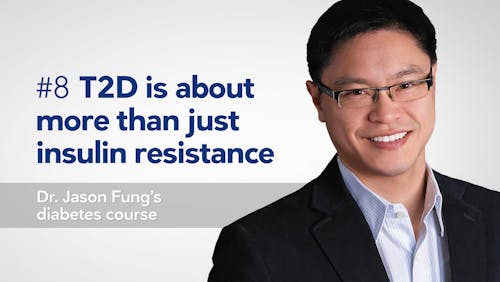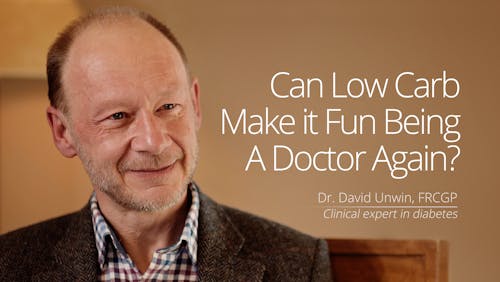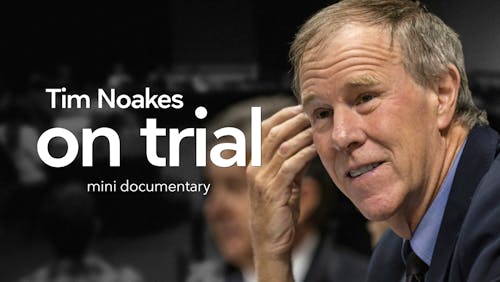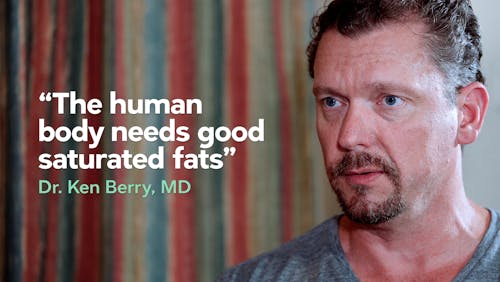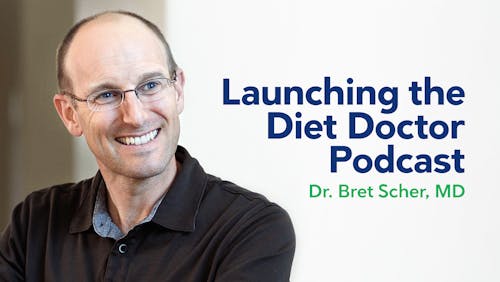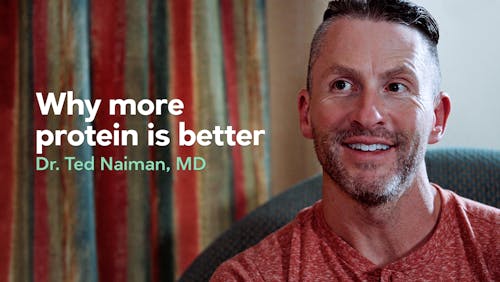Dr. Hampton: How to manage stress for diet and health success

Photo: Spencer Bibbs
Dr. Tony Hampton is a family physician on the South Side of Chicago. He is writing a monthly column for Diet Doctor. This is his fourth column.
Do you feel stressed? If so, you’re not alone.
We all have times when we feel overwhelmed. Whether it’s a result of work, money, relationships, health, grief, loss, world events — or pandemics— sometimes we feel we just can’t handle what’s happening in our life.
Feeling overwhelmed by stress can undermine our health, our happiness, and our keto diet success.In my NEST and ROPE approach to improving health, stress is a key component. To recap, the letters in the NEST acronym stand for Nutrition, Exercise, Stress/Sleep, and Thoughts/Trauma. The letters in ROPE stand for Relationships, Organisms, Pollutants, and Emotions/Life Experiences.
As you can see, it’s not just stress/sleep that is listed, but also thoughts/trauma, relationships, and emotions/life experiences — all of which can play into that overwhelming stress response.
That’s why this month’s column will focus on what we know about the science of stress. I’ll talk about how to recognize the impact of stress on your life and develop some skills to tame it.
I say “tame” deliberately because stress – and our response to it — will never go away. It is a fundamental part of being human. It is part of our innate survival system. But we can learn to tame it.Recognize your stressors
I always ask patients about their stress. In recent months, especially with Covid-19 and current events, my patients are more stressed than ever. In fact, I cannot recall a time in my 27 years as a doctor when so many patients have felt so stressed for so long.
The first thing I say is “Welcome to the club.” That’s not to diminish the stress, but rather to acknowledge that these days everyone is feeling it.
Note that I say feeling. Stress is a feeling; it’s an interpretation of what is happening around you. And the great thing about feelings is that no matter how you feel, you are likely not going to feel that way forever. Most stress is temporary.
The first skill is being able to recognize what is causing your stress and figuring out whether it is under your control to change it.For example, you may not be able to make the pandemic go away. You can, however, take steps to improve your metabolic health and take the recommended public health precautions to reduce your risk. Taking action around the things you can control often reduces the stress.
Likewise, you may not be able to control the news, but you can decide to stop scrolling on Twitter or to turn off TV broadcasts.
Some types of stress are much more difficult to manage and tune out — losing a job, having marriage problems or undergoing a divorce, losing a loved one. We will talk a bit more at the end about those very stressful life events that you may feel you cannot control.
Understanding the stress response
If you understand the science of the stress response, then you can take steps to tame it.
Stress is part of our body’s fight or flight response. It is your body’s perception or feeling that danger is near.The body gets ready to respond to the perceived threat. Our adrenal glands release hormones, most notably epinephrine and norepinephrine. These raise our heart rate, increase our blood pressure, and increase our respiratory rate. This readies our body to either fight or run.
That’s why, when you’re stressed, your breath is often quick and shallow, and your heart races. It may be difficult to fall asleep or stay asleep because you feel too revved up.
Cortisol is another stress hormone released by the adrenal glands that has many functions in the body. But one of them is to increase your blood sugar to give you extra energy to fight or run from that perceived danger.
These natural stress responses give your body additional strength and physical resources.But if the release of this stress does not come, it turns into chronic stress. Research shows that chronic stress has many health impacts such as higher blood sugar, higher blood pressure, poor sleep, inability to relax, headaches, digestive issues, and other adverse outcomes.
Negative ways to release stress
Feeling stress, especially chronic stress, is very uncomfortable, so we naturally seek ways to relieve it. People often do this in ways that feel helpful at first but undermine our health and wellness over the long term.
Alcohol, of course, is a big one. The world over, people use alcohol as a stress reliever. There is evidence that during the pandemic people have been drinking more. While consuming alcohol may provide temporary relief, it also interferes with sleep, sets up dependency or addiction, and has a toxic impact on many body systems, such as your brain and liver.
For these reasons, it’s important to recognize how much you are using alcohol to relieve stress in your life. And look for other ways to ease that stress.Drugs are the same. Short-term prescriptions or over-the-counter medications for sleep may be a temporary solution but are never good for the long term. Illegal drugs may briefly take you out of your reality, but just bring more stress, misery, and woe to your life and those around you.
Compared to drugs and alcohol, seeking relief through foods may seem harmless, but I have seen many patients whose health and weight are undermined by trying to relieve their stress by turning to food for relief.Stress-eating is natural and common. We all do it.
What is your go-to comfort food? For most people, it’s something that is high carb, high sugar, or a highly processed food that’s also low in protein and nutrients. And that comfort food acts on the brain’s reward system and neurotransmitters, releasing dopamine that temporarily makes us feel better.
But most comfort foods cause blood sugar to dramatically spike and fall, contributing to feelings of anxiety and to increased cravings for more. It also increases inflammation in the body.
Resorting to comfort foods to relieve stress can contribute to a vicious cycle of feeling physically ill and psychologically upset at yourself, which then creates the need to relieve those bad feelings with more comfort.
So pay attention to your stress response. Do you reach for a drink, a pill, or a bowl of ice cream or nacho chips to try to relieve it? All of these can undermine your health, derail your weight loss, and ultimately not help your feelings of stress.
The first step is to become aware that the root of this behavior is your stress response. Recognize it. Name it. And consciously try to choose another option.
It doesn’t have to be perfect. Be kind to yourself, understand that you are feeling stressed, and try other ways to deal with your stressful feelings.
9 positive ways to deal with stress
You may already know about some of the healthy ways to relieve stress, but it helps to review them. Whenever you feel stressed, consciously try to do one or more of these actions:
- Mindful breathing: The simple act of watching your breath and then trying to slow it down, making your breath deeper and more deliberate, is a great stress-buster. It is a form of meditation, but some of my patients think meditation is too “new age” and not for them.
So instead, I just teach them a simple technique called “box breathing.” It’s easy, and it works:
- Breathe in deeply to a count of four.
- Hold that full breath for a count of four.
- Release the breath slowly to a count of four.
- Hold that exhaled state for a count of four.
Repeat the cycle for as long as you like. Just three to five minutes will bring about a noticeable reduction in your feelings of stress.
There are many different breathing exercises. A number of smartphone apps are available that can guide you through different ones. Whenever you feel yourself craving a drink or comfort food, try a round of mindful breathing first.
- Movement: Exercise is a great stress reliever. One reason is that the stress response is setting you up to fight or flee, so moving is the natural response to expel that pent up energy.
The movement doesn’t need to be intense, like a major workout. What’s the best exercise? The one you like to do! Just move. A simple walk around the block, dancing to music in your kitchen — anything that makes you feel good.There are lots of smartphone apps for various exercises to get you started.
- Nutritious food: If you are craving high-carb comfort food, eat something low in carbs but rich in protein instead, such as a couple of boiled eggs. If you feel hungry for more than a snack, make a low-carb meal with protein, healthy fat, vitamins, and minerals.
Make a meal like this even if it is not your traditional mealtime. No matter what the time of day, it is better to fill up on greens like broccoli, kale, or other vegetables and have some healthy protein like salmon, eggs, or meat than to risk binging on empty comfort food.Foods high in protein and omega-3 fats may help reduce inflammation and stabilize mood. If you are going to eat to relieve stress, make it high-quality, nutritious low-carb food and enjoy it.
- Supplements: Vitamin B is called the stress vitamin, and if you are not eating well, you may not be getting enough. Leafy greens, meat, and other animal proteins all contain Vitamin B. You can also consider taking a Vitamin B supplement.
Magnesium is another great stress reducer, and many people have magnesium deficiencies. This mineral is involved in hundreds of processes in the body, including relaxing muscles, regulating neurotransmitters, helping brain function and mood, and improving sleep quality. - Reframing: Stress is often caused by the way we interpret and label our situation. There’s a well-known saying, “When you change the way you look at things, the things you look at change.”
Let me give you a recent example in my own life. I recently had a flat tire in my new car. At first, I was really upset, like, “Why me? I’m so busy. This is terrible.” I called roadside assistance and was told the wait would be at least an hour.Being stressed about it wasn’t helping me. So I reframed it in my mind as relaxation time. I listened to music. I did some breathing meditations. I used my phone to answer some emails.
The situation was still the same, but I decided to treat it as some unexpected time to relax. It went from “this is terrible” to a much-needed pause in my day.
This type of reframing is part of cognitive-behavioral therapy or CBT. There are many different CBT techniques and many apps now to help you do this type of mental reframing.
- Self-care and setting boundaries: Many things that cause us stress stem from our interactions with others and their expectations. Many of us have a real problem with saying “no.”
Some of this stress comes from doing so much for other people that we don’t look after ourselves. But self-care is not selfish. It is the same principle as being told to “put on your oxygen mask before you help someone else” when in flight.One of the greatest lessons I’ve learned to reduce my stress is to take care of my needs first, set boundaries, and say no. When I do, I have much more to give to others. I cannot help others effectively if I cannot help myself first.
- Gratitude: In tough times, like the past year, it is easy to focus on all that is wrong. Take a minute to instead focus on the positives. What are you grateful for? Even small things can lift your mood and provide relief.
It’s not always easy. I’ve had to train my brain to look for the positives. For me, it helps to be around and listen to positive people. One person I listen to? Eric Thomas (etinspires.com). He’s an African American hip-hop preacher and motivational speaker. He resonates with many of us in communities of color.I also think it helps to listen or read positive affirmations – you can just type “positive affirmations” into a search engine. A stressed brain keeps going back to negative things. But if you listen to or read positive affirmations, your brain will hear those words and retrain the neurons to lean more toward the positive.
- Faith: In times of stress, we are buoyed and supported by our faith, whatever that may be for you. In the African American community that I serve, many of my patients believe in Jesus and a loving God that gets them through a lot of difficult life situations.
Prayer, too, can be a form of meditation and getting outside your head. Whatever your spirituality and beliefs, tapping into your faith in something greater than yourself can help bring stress relief. - Incremental steps: Lists like this can sometimes make some people even more stressed. “What? It’s another ‘to-do’ list?!” But try to think of these tips as little helpful steps you can take.
You don’t need to do them all. You don’t need to be perfect. Just try one or two the next time you find yourself feeling so overwhelmed that you’re tempted to reach for a drink or a donut.As we talk about improving your health, it’s important to acknowledge that it will not happen overnight. It is a slow, sometimes life-long process. It is always a journey — not a destination. So take incremental steps to help reduce your stress. Some days you will do more than others, but they are all steps in the right direction.
For today, ask: Did I eat a healthy low-carb meal? Did I go to bed at a good time so I could get more sleep? When I was feeling overwhelmed did I focus on my breathing? Did I turn off the news?
If you did any of these things, you are moving in the right direction.
When life is too hard
These nine steps can help, but sometimes they are not enough. Sometimes life stressors are too much to deal with on your own.
Death of a loved one, trauma, a loss of a job, serious relationship issues, such as marriage breakdown, divorce, or even domestic violence — can be too big to respond effectively with these nine steps.
In these instances, seek out support. That could be from your doctor, a community program, a therapist, an online community, or a friend.
In a future column, I will talk more about relationships and their impact, positive and negative, on your diet and health success.
But in my next column, I will focus specifically on sleep because it is so crucial to our health, our ability to deal with stress, and even to achieving and maintaining a healthy weight.
Until then, be well, and continue to protect your NEST.



